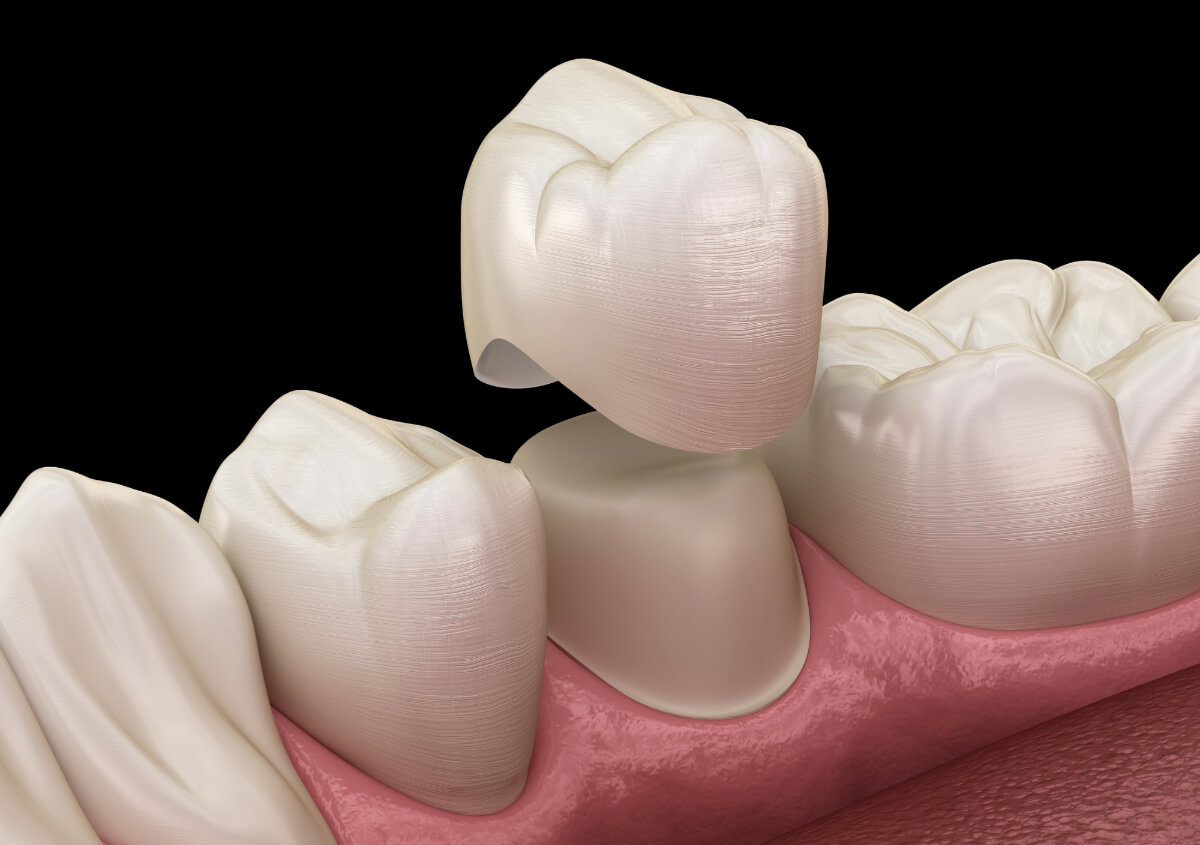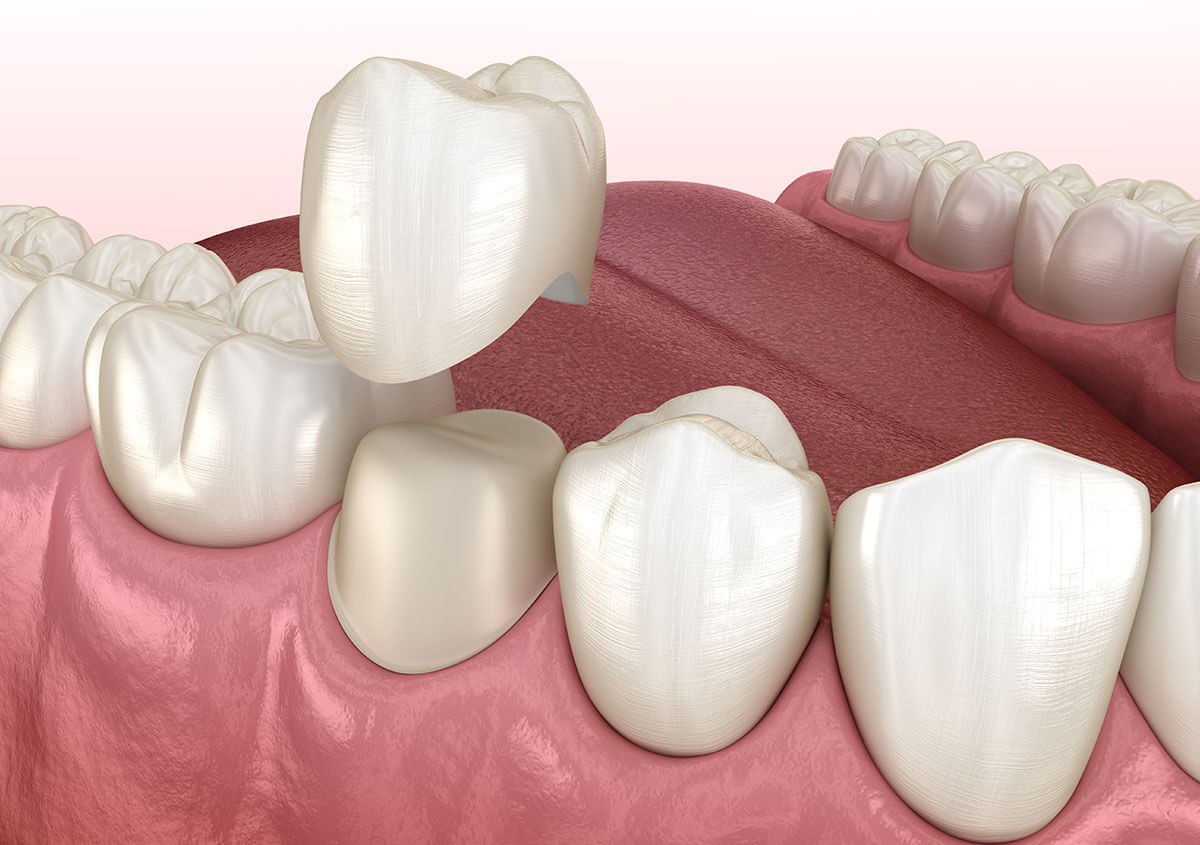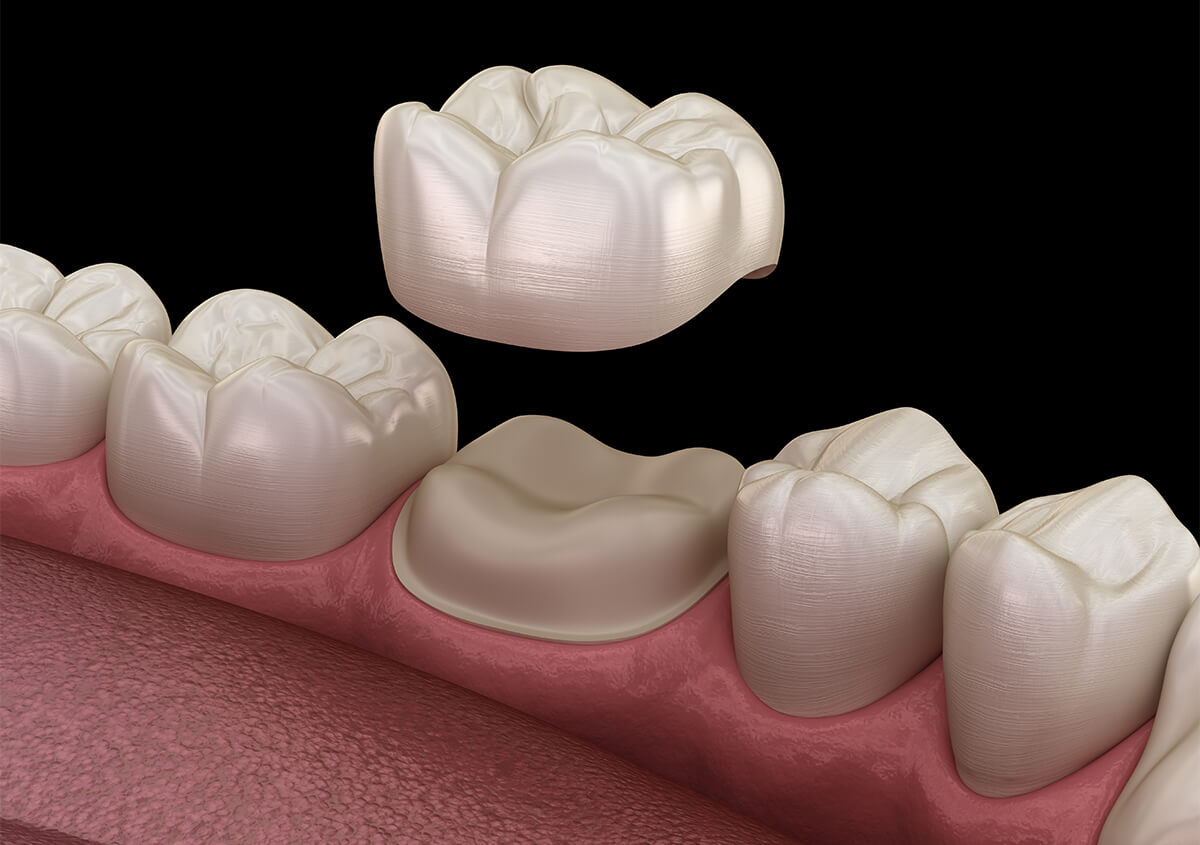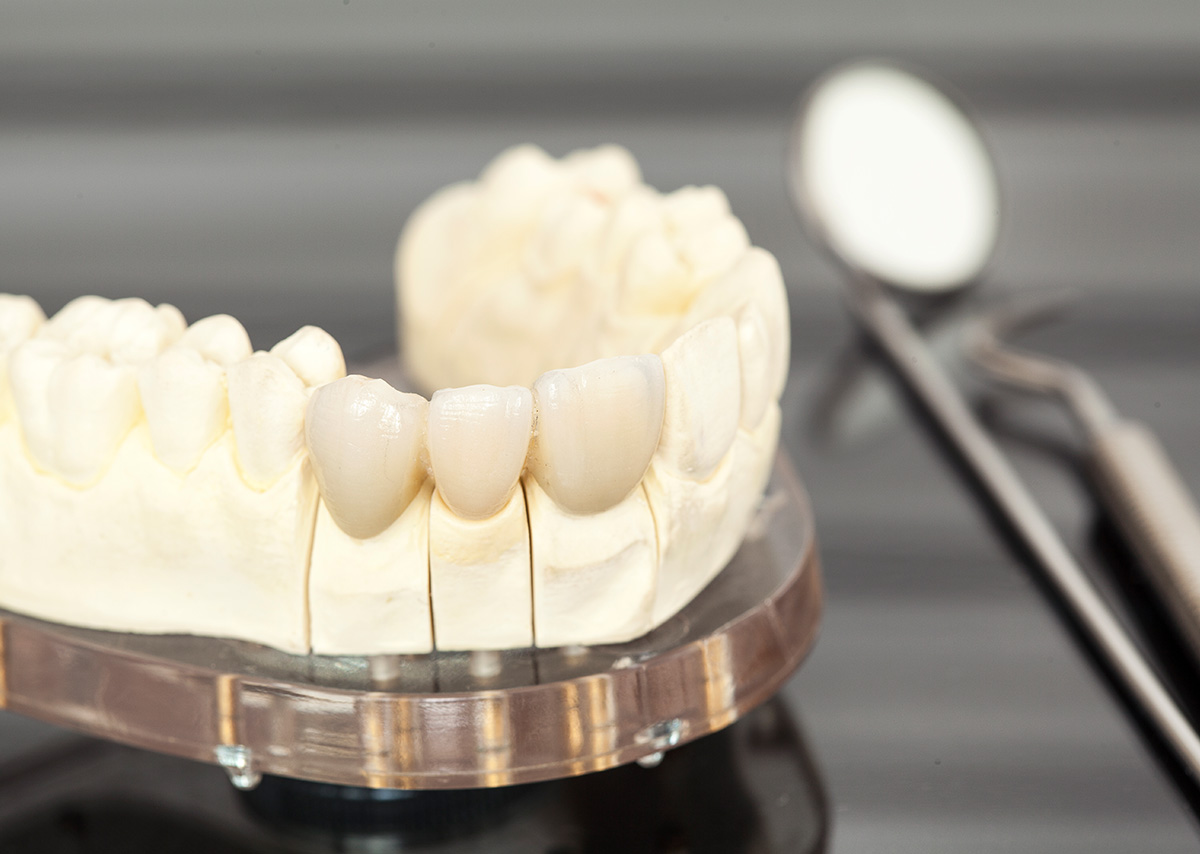A variety of crowns, for an array of needs, to restore healthy mouths
As our name suggests, My Dental and Implants in Glendale, Arizona, are skilled at rebuilding teeth. Dr. Nima Afzalian can reconstruct a portion of a tooth that is damaged or lost due to decay, fractures, or other trauma. Likewise, they are adept at replacing an entire tooth that has been lost or extracted due to dental disease. Dental crowns may be recommended to do both of these noble missions: to replace lost or deteriorated tissue (to preserve a tooth) or to replace an entire tooth that cannot be preserved through other means (such as nonsurgical root canal therapy). In turn, dental crowns are among the most versatile restorative procedures that dentists can use to keep patients’ smiles looking, feeling, and functioning great.
Following an examination at our Phoenix area office, Dr. Afzalian may recommend dental crowns to:
- Replace a worn filling
- Treat bigger cavities as an alternative to large fillings
- Hold together a broken or badly damaged tooth
- Restore the strength and structure of a root canal-treated tooth
- Protect a treated tooth; prevent reinfection
- Replace teeth as part of a dental bridge
- Connect to an implant in the jawbone (for tooth replacement)

In some cases, crowns are even appropriate cosmetic treatments. They may be the only way to properly cover up a misshapen tooth. Veneers and bonding techniques may not be appropriate in this case because these restorations are only applied to the fronts of the teeth (and not to other areas, such as the chewing surfaces). In general, crowns replace the white part of the tooth seen when you smile. They may be fashioned from various materials, including metals (like gold) and ceramics (like porcelain). Some crowns contain a combination of both types of materials: a toothlike porcelain coating and a strong metal core. Our approach to planning is exacting; we will discuss the pros and cons of various options when making over your tooth or smile with crowns. There are several factors to consider, such as the location of the damaged or decayed tooth. Premolars and molars, for instance, withstand lots of pressure and forces from functions like grinding down food. So, they require materials that optimally support these functions.
Our neighbors in and around Sun City, Surprise, Peoria, and Cave Creek should reach out to My Dental and Implants today to book an appointment with our friendly and knowledgeable team. Call (623) 526-2330 without delay. Many oral problems are asymptomatic in their earliest stages. So, intervening before you notice changes like sensitivity or bleeding can help you avoid the need for any restorative procedures – including crowns.











